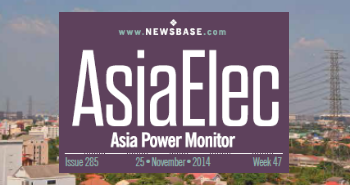Russia seeks to expand its nuclear energy dominance with new international projects

Russia is constructing over 10 nuclear power units on foreign soil to help capitalise on burgeoning energy demands driven by artificial intelligence and developing markets, a senior Kremlin envoy has revealed.
As bne IntelliNews reported uranium is the new gas and Russia remains one of the main sources of enriched nuclear fuel. At the same time Russia’s nuclear exports are booming as it seeks to tie more countries to itself using 60-year fuel supply and service contracts that come with Russian-built nuclear power plants (NPPs).
The country’s intensified nuclear efforts reflect a broader strategy to solidify its global influence, with projects underway in nations such as Bangladesh, China, Egypt, India, Iran, and Turkey. Despite heavy sanctions targeting its oil and gas industries following the invasion of Ukraine, Moscow has bolstered its role as a major provider of nuclear energy.
Boris Titov, President Vladimir Putin’s special representative for international co-operation in sustainability, highlighted Russia’s ambitions in an interview with the Financial Times. “We are building more than 10 different units around the world,” Titov said. “We need a lot of energy. We will not be able to provide this energy without using . . . nuclear. We know that it’s safe . . . it’s not emitting [greenhouse gas emissions], so it is very clean.”
Growing demand for nuclear energy
The International Atomic Energy Agency forecasts a 155% increase in global nuclear generating capacity by 2050, reaching 950 GW. Russia’s expanding portfolio includes reactor construction, fuel supply, and related services across 54 countries, according to research by the Norwegian Institute of International Affairs.
Titov underscored projects such as Hungary’s Paks 2 plant and developments in Turkey and Bangladesh. Russia is also advancing plans for small modular reactors in Uzbekistan and has signed agreements with Burkina Faso’s ruling junta. The Financial Times previously reported that Russia is involved in over a third of all new reactors under construction globally.
Western governments are seeking to counter Russia’s dominance in the nuclear sector. The US banned imports of Russian-enriched uranium in May, while most eastern European countries have switched to alternative suppliers for fuel compatible with Soviet-era reactors. However, Hungary has resisted such measures, with Prime Minister Viktor Orbán supporting Russian partnerships.
EU energy policy divides
Efforts to decouple Europe from Russian nuclear supplies have encountered resistance. EU energy commissioner Dan Jørgensen aims to scrutinise the entire nuclear supply chain as part of broader sanctions. Nonetheless, Hungary and Slovakia remain critical of such initiatives, with Slovak Prime Minister Robert Fico declaring after a meeting with Putin that sanctions threatening electricity production would be “unacceptable”.
Russia’s state nuclear agency, Rosatom, continues to prioritise reliability, an EU official acknowledged. However, sanctions on Gazprombank, a key conduit for Russian energy payments, pose immediate challenges. The measures exempt civil nuclear projects, except for Hungary’s Paks 2 plant—a move Hungary’s foreign minister, Péter Szijjártó, labelled an “entirely political decision”.
Expanding global opportunities
Russia is eyeing emerging markets for nuclear expansion as many developing countries look to nuclear energy for clean power. Malaysia, for example, is exploring its potential, according to Nik Nazmi Nik Ahmad, Malaysia’s minister of natural resources and environmental sustainability.
At the UN COP29 summit in Azerbaijan, US National Security Council senior energy director Jake Levine expressed concern over the growing role of Russia and China in global nuclear energy, calling the competition a “huge issue”.
With its aggressive push into international markets, Russia aims to reinforce its position as a leading nuclear power player, even as geopolitical tensions escalate.




Follow us online